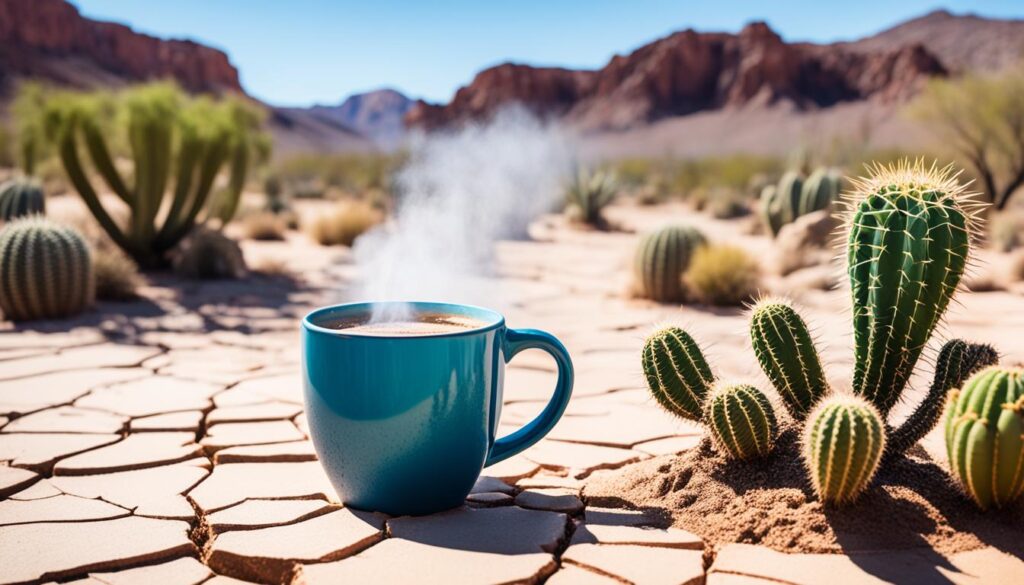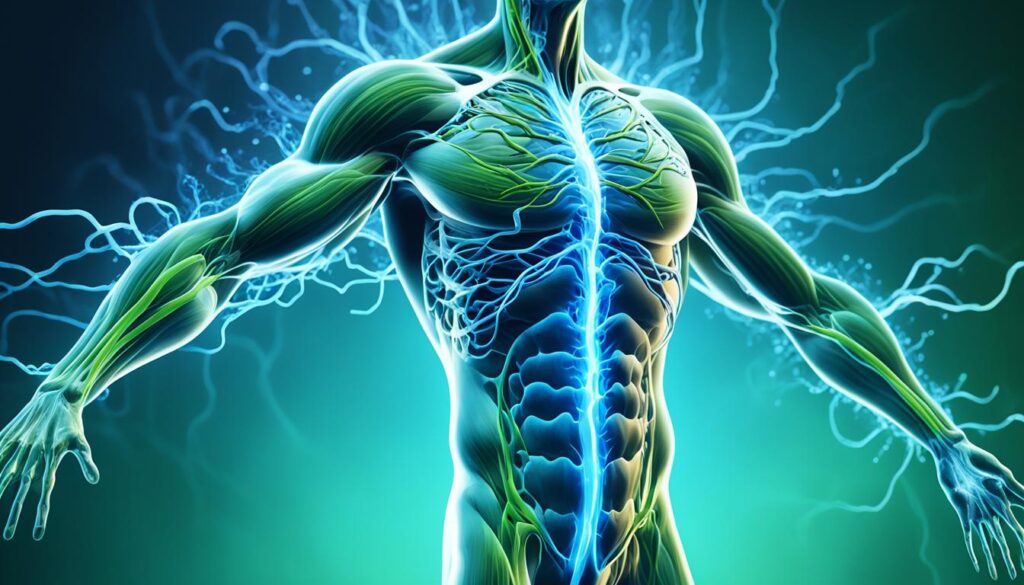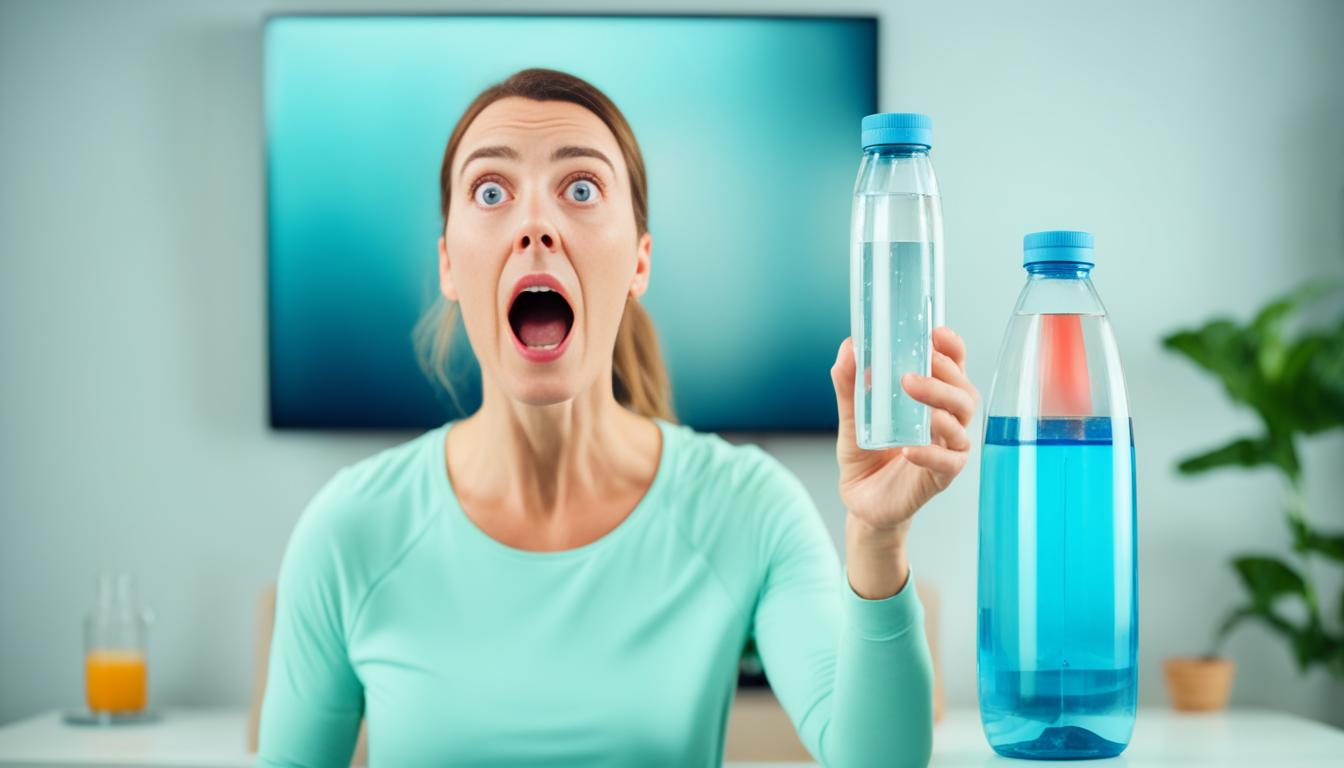Contrary to popular thinking, there isn’t a solid reason to drink exactly eight glasses of water every day. How much water we should drink changes depending on our size, how active we are, the weather, and how much we sweat. Pregnant or breastfeeding people, for example, need to drink more to keep up with their body’s needs. Holly Gilligan points out this need for more water1.. And, Tamara Hew-Butler suggests that listening to our body’s thirst is better than trying to hit a specific target. According to the U.S National Academies of Sciences, adults in moderate climates should aim to drink 92-124 ounces a day1. Remember, how much we need to drink changes based on personal factors like the weather and how active we are1.
Key Takeaways
- The traditional advice of eight glasses of water a day lacks rigorous scientific support.
- Hydration needs vary based on body size, activity level, and other individual factors.
- Pregnant and breastfeeding individuals need more water to stay hydrated1.
- The U.S. National Academies recommend 92-124 ounces of water daily for adults in temperate climates1.
- Trusting your body’s thirst mechanism is a reliable way to stay hydrated.
Debunking the 8 Glasses of Water Per Day Myth
Many of us believe we must drink eight glasses of water daily. But, this is more myth than fact. It comes from a suggestion by the U.S. Food and Nutrition Board in the 1940s2. They said we should drink 2.5 liters daily, mostly from food and drinks. But, everyone’s needs are different, and this idea doesn’t fit for all.
Factors Influencing Hydration Needs
Your body’s need for water changes from person to person. The Institute of Medicine says women should have 2.7 liters (11 cups) a day, and men, 3.7 liters (13 cups)2. Things like how big you are, how active you are, the weather, and how much you sweat all play a role. Remember, you can get water from many sources, not just plain water2.
The Role of Body Signals
Our body has smart ways to tell us when we need water. It uses systems like thirst to make sure we stay hydrated3. But, sometimes thirst and hunger can feel the same, confusing us. This happens to 37% of people4. Keeping an eye on these signals is key. Just a small drop in your water levels, about 2%, can lead to issues like fuzzy memory and having trouble focusing4.
Special Cases for the Elderly and Pregnant Women
Older folks and pregnant women have special reasons to watch their water intake. As we get older, we might not feel thirsty as much. So, it’s more important to drink water regularly3. Expecting mothers need extra water to handle their body changes. For them and for all of us, knowing our own hydration needs is vital. Everyone is different, and not all can stick to the same hydration rule.
The Truth About Caffeine and Hydration
Some think caffeinated beverages make us lose more water than we drink. But, if we take them in the right amount, they don’t dry us out. They can even add to the fluids our body gets, which is good for us.
Diuretic Effects of Caffeine Explained
Caffeine makes us pee more, which is why it’s called a diuretic. Yet, the water in these drinks balances that out. Studies show that drinks like coffee and tea actually help keep us hydrated5. So, their water makes up for the extra trips to the bathroom.
How Coffee Contributes to Fluid Intake
It’s a myth that coffee can’t help us stay hydrated. In truth, both regular and decaf coffee are good for keeping us moist. They offer the same benefits as other drinks6. Just make sure to also drink things without caffeine to keep a good balance.
Holly Gilligan says we should vary our drinks to stay hydrated and healthy. And, don’t worry too much about caffeine making us lose water. It can, in fact, be part of our fluid intake7. Remember, we get water from food, too, like juicy fruits and veggies5.

Sports Drinks vs. Water: What Do You Really Need?
For athletes looking to stay at their best, electrolytes are key. These are minerals like sodium, potassium, and magnesium. They help muscles work and nerves send signals.

The Role of Electrolytes
During hard exercise, you sweat out electrolytes. Sports drinks are made to put these important minerals back. They keep athletes hydrated. But if you’re not sweating much, you may not need these drinks. There’s no rule that says you must drink eight glasses of water every day. It’s all about figuring out what your body needs8.
Hydrating as an athlete varies. It means making sure you drink the right amounts, based on what your body demands.
Situations Where Sports Drinks Are Beneficial
For long, hard exercises, electrolyte sports drinks are great. They help keep a balance and avoid dehydration. Especially in hot weather. Sports drinks are key for marathon or triathlon runners. But interestingly, drinks with caffeine or a little alcohol can hydrate as well as plain water8.
Alternatives to Sports Drinks
Not a fan of sports drinks? Try salty snacks or coconut water. They’re good for getting back lost electrolytes. Just watch the sugar in these options. Too much sugar can harm your hydration plan. The best thing is to have a varied approach to staying hydrated. Look at what you do and where you are, then drink and eat what’s best for that situation.
Your Body’s Natural Cravings for Salt
The human body has a smart way of telling us what it needs, and wanting salt is one of these signals. Scientists like Tamara Hew-Butler and Yuki Oka have found that our brains keep an eye on how much salt we have. They let us know when we need more to keep our electrolytes in check for good health. So, when you feel like eating something salty, it’s your body’s way of saying it needs more salt.
Sport drinks claim to be the ultimate in refilling lost electrolytes. But, that’s not always true. Eating salty foods can often do the trick just as well. This means you might not always need sport drinks, unless you’re working out hard or spending lots of time in the heat. After you exercise, it’s crucial to replace the electrolytes you’ve sweat out. In these cases, products like ORS are quite helpful at keeping your salt balance just right9.
Many people think that clear urine means they are perfectly hydrated. But, that’s not always the case. Clear urine at all times could signal you are drinking too much, or it might even be a sign of diabetes9. It’s important to listen to your body when it comes to drinking enough and not too much. Find a balance by also getting fluids from fruits, veggies, tea, and coffee. This mix helps with good salt and fluid levels in your body9. For more on staying hydrated and how to know when you need water or salt, give this article on Hydration Myths Busted a read. It will guide you to make the best choices for your hydration.
Source Links
- Hydration 101: Drinking 8 Glasses of Water and Other Myths Debunked
- Do You Need 8 Glasses of Water a Day?
- Myth Busting: No More 8 Glasses a Day
- Do You Need Eight Glasses of Water Per Day?
- Is coffee hydrating? (and the truth behind other hydration myths)
- Busting the Myths About Your Water Intake | Banner Health
- Busting 5 common myths about water and hydration
- 7 hydration myths you need to stop believing




